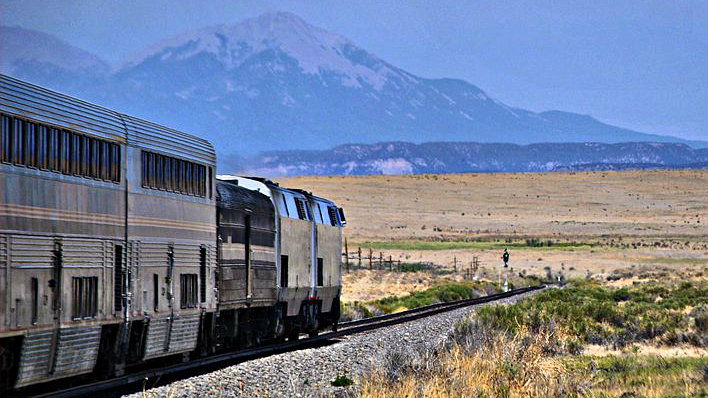

The Colorado Department of Transportation announced Tuesday that it’s soliciting bids to study passenger rail service from Fort Collins to Trinidad.
CDOT and the Southwest Chief/Front Range Passenger Rail Commission, which the legislature created in 2017, say the study will explore different options to relieve congestion along the quickly growing Interstate 25 corridor.
“To meet the growing needs of our state, Colorado needs a robust, energy efficient, sustainable transportation system that incorporates different modes of travel and provides more choices for the movement of people and goods,” Shoshana Lew, CDOT’s executive director, said in a statement.
Any new system would be a massive undertaking, with coordination needed from local municipalities, freight railroads, existing transit services like Amtrak and RTD — and, of course, a lot of money. The study will explore possible routes, capital and operating costs, and other factors.
Sandra Hagen Solin, the spokeswoman for Fix Colorado Roads, an advocacy group that has support from the Front Range business community, said she's glad to see the state evaluating passenger rail. But she said the state shouldn't lose sight of the larger transportation picture.
“We encourage them to look at innovative rail transportation solutions and encourage commission members to be mindful of funding a rail solution in concert with, not at the expense of, other facets of the transportation network," she said in an email. "We are eager to engage in those discussions.”
According to its request for proposals, CDOT wants to send information from the study to the legislature early in the 2020 session. The lawmakers would then refer a funding measure to the 2020 ballot. That would go to voters in a newly created tax district covering the Front Range, not the entire state.
Still, that could be a significant challenge for train backers — especially if competing interest groups place other transportation funding measures on next year’s ballot. Two such competing statewide measures failed in 2018.
The agency expects to award the contract this summer and for the entire study to take more than two years to complete.









